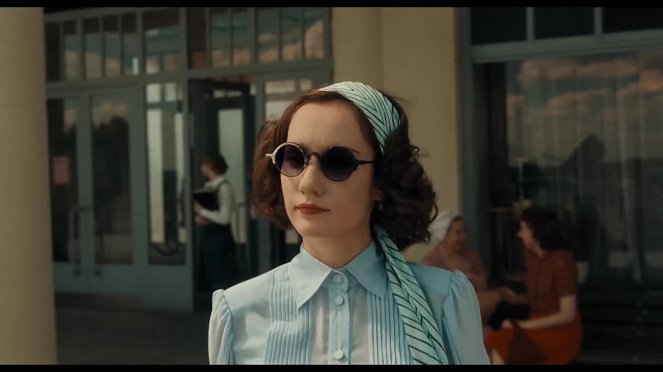Directed by:
Matěj ChlupáčekScreenplay:
Miro ŠifraCinematography:
Martin DoubaComposer:
Simon GoffCast:
Eliška Křenková, Miloslav König, Milan Ondrík, Marián Mitaš, Luboš Veselý, Martha Issová, Ladislav Hampl, Ján Jackuliak, Anton Šulík ml., Richard Langdon (more)Plots(1)
In the 1930s, a pregnant doctor must navigate a web of superstition and prejudice while seeking the truth about a shocking find at her husband's factory. (Netflix)
Videos (4)
Reviews (8)
An above-averagely filmed average parable whose plot doesn't surprise much and whose characters (with perhaps one exception) hardly step out of the tightly packed boxes the script has assigned them. And while the message is commendable, We Have Never Been Modern ultimately comes off as rather ham-fisted. It's a pity that the they didn't reach for, for instance, the story of Zdeňka Koubeková/Zdeněk Koubek from the same period, which is more interesting and, more importantly, actually happened.
()
It's too ambitious and at the same time too weak. It has no particular genre and it is uncertain. Is it a thriller? Is it a crime story? A drama? A period piece? A psychological film? A modern melodrama? Nobody knows, but many viewers applaud it because it's simply different. Some are distracted by the picturesque Tatra Mountains and the setting of the Baťa plant. Other viewers are drawn in by the hermaphroditism and few see how weak the psychological connection between the main characters is, the interactions between the supporting characters are rushed, and although We Have Never Been Modern has successful camera work, set design, costumes, and mask, it only loosely adheres to the reality of 1937. These are actors adjusted to the latest trends of barber shops, jerseys, and hoodies... which are understandable today, but nonsensical in the given period piece. Some details are successful, such as the use of František Krištof Veselý's song, but the whole fails. Whether as a crime, drama, or educational film.
()
Great technical level. The choice of time and setting and the associated production design, the use of miniature buildings and the effects that embed live characters in them is great. Even the prosthetic make-up on Ladislav Hampl's face looks pretty solid. But the story, its associated themes and characters work less well and at times seem as heavy-handed as the dumb English title We Have Never Been Modern. I have a problem with several of the moral aspects of the film, which are either presented as entirely unproblematic or, for good measure, not mentioned at all. Overall, however, this is still one of the more thematically interesting works of Czech cinema this year, though in my opinion somewhat along the lines of the saying “in the land of the the blind, the one-eyed is king”. [KVIFF 2022]
()
Someone filmed a series that was decided to be only a film in post-production. Actually, I'm a bit disappointed not to rate it higher because its crafty creative ambitions are easily justifiable on a European scale, but the development of the plot on multiple fronts only leads to a satisfying conclusion in one case (the marital dispute on the staircase, where the perception of the characters is completely turned around, is a screenplay gem, no debate about it), while each of the fronts deserved to be explored much more. Thus, it remains a cheap crime story from a dime-store detective novel, the building of capitalism on the scale of a newspaper article, and a counter-diversion action from a wet dream of a novice spy. However, the "modern" theme of the film holds up, a bit clumsily but effectively and sensitively, in retro attire. 3 and ½.
()
We Have Never Been Modern benefits from an unusual premise – by Czech, but I think also by international standards – and it combines several thematic or genre levels quite skillfully: from a relationship drama through a (pseudo)crime story to a certain social probe into the 1930s, but with timeless insight. Matěj Chlupáček's film could certainly be faulted for a few things, like Helena's period inauthentic speech (especially in the field of sarcasm) or Ladislav Hampl's prosthetics (there must be a more "plump" colleague among Czech actors), but for my part, the rather positive impressions prevail. Hermaphroditism (like aphasia in this year's Exhale) is not a common theme and certainly holds other possibilities. In We Have Never Been Modern, this theme is enlivened by an appealing period colour – here I would like to praise the production design in particular, but also the costumes – and several leading dichotomies (man x woman, factory employee x worker, "divine creature" x "unholy monster"). Of the cast, I would single out Eliška Křenková and Richard Langdon; I was also impressed by the smaller role of Ján Jackuliak, who provided one of the film's strongest moments. I am curious to see what project Chlupáček will come up with next.
()
Gallery (50)
Photo © Bontonfilm



Ads